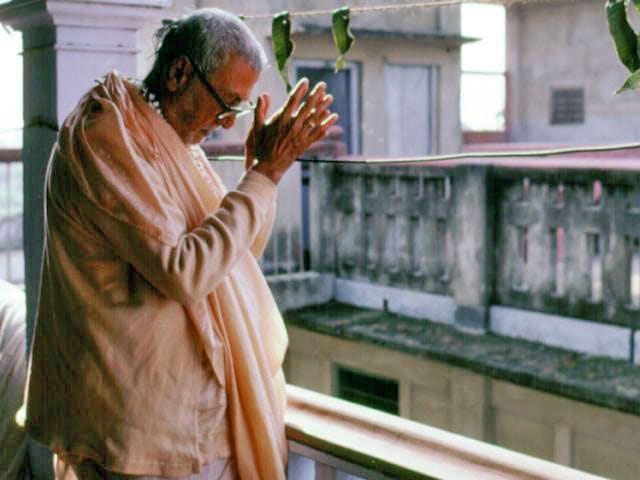
RECOGNIZING THE DIVINITY
Student: Maharaj, if prasadam
is distributed to the mass of people, they benefit, yes?
Srila Sridhar Maharaj:
It depends upon who is the director, who is at the bottom. It depends on
him: his connection with divinity.
Student: As to whether it is
properly sanctified?
Srila Sridhar Maharaj:
The current must be there. Only wiring has no value. Do you follow? It
may be connecting wiring but have no current. So, Vaikuntha-Nama-grahanam,
the Vaikuntha connection, the transcendental connection, must be there.
Otherwise, form is form; it is useless. The spirit must be within the form.
The form is also necessary; wiring is also necessary to utilise the electric
current, but mere wiring has no utility. The current must be there.
So, prasadam distribution and all
such things may only be an external exhibition. If real connection with
divinity is present, then they are not, but otherwise, they may all be
trade. An ulterior motive may be there as a business. The jati-goswamis
read the Bhagavata and take money as a class of trade. If the man who is
at the back has sincere connection with the Lord, then that connection
comes and pervades everywhere. Then, there is pras?dam. Otherwise, there
is only imitation, and imitation is not the real thing.
So, Bhakti Vinod Thakur said that
in a congregation kirtan, a sankirtan, at least one man, the leader of
the party, must be suddha-bhakta, a pure devotee. When a kirtan party is
guided under a pure devotee, then we shall join. Otherwise, we all will
be dancing and jumping in the mundane plane. The connection must be there,
the electric connection.
Student: How can one perceive
that connection?
Srila Sridhar Maharaj:
One who has the eye can see. We have to get the eye:
ajnana-timirandhasya jnananjana-salakaya
Our own realization will be the guarantee,
our own knowledge. With that we will see, and that sort of eye is given
by Gurudev.
chaksur unmilitam
The cataract is removed by Gurudev.
He gives the divya-darshan, the divine eye, divya-chakshu, that is, diksha.
Diksha means divyam jnanam yato dadyat: transcendental knowledge is imparted,
and as much as one has got that sort of knowledge, one can detect the divine
connection.
It is the same in other fields and
other cases. How you can know whether a stone is a gem? Whether a metal
is gold or brass? How can you detect whether something is glass or diamond?
Who can consider this things? Expert knowledge must be there, and one who
has that knowledge can detect others who have it. Fools, ordinary persons,
the ignorant—they cannot differentiate.
This point is applicable everywhere.
Whenever we go to purchase anything, medicine or this or that, everything
may be tampered with or be an imitation. How can we understand whether
this is the case? Expert knowledge must be there. Similarly, what is mundane
and what is transcendental? What is sincere sev?? What is meant for the
service of the Lord and what is for some ulterior purpose? One who has
the fine eye can detect this.
ye jana vaishnava chiniya la-iya
adara kariba yabe
Bhakti Vinod Thakur says we shall
serve the Vaishnavas, but before that we shall have to get the capacity
to recognise who is Vaishnava and who is not a Vaishnava. Someone’s figure,
tilak, mala, and dress cannot be the criterion as to whether they are a
sadhu.
All these things we are to understand,
and that capacity of recognition is possible. That is diksha, divya-jnan.
We are all expert in some stage or
in some plane, and there we are to differentiate things everywhere and
every time. In marketing, or in this, or in that, we are to discriminate.
We must have knowledge of what we are seeking. Otherwise, we will be exploited
by merchants. Everywhere in every stage of life such understanding must
be with us. So, it is also in the case of divinity, transcendental truth.
It is also possible to develop the transcendental eye, transcendental capacity
and judgement. That must be with us.
Hare Krishna. Gaurahari.